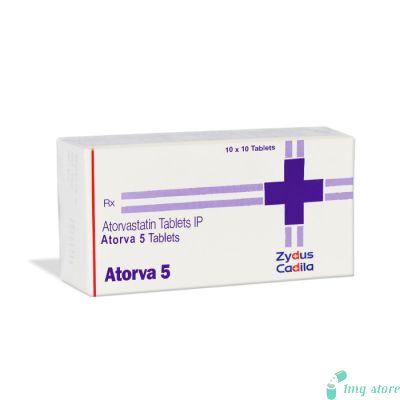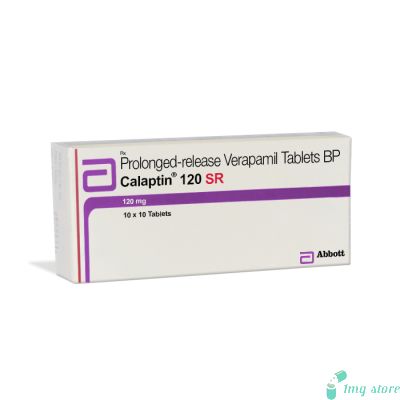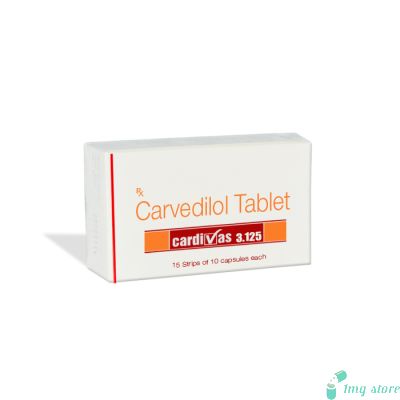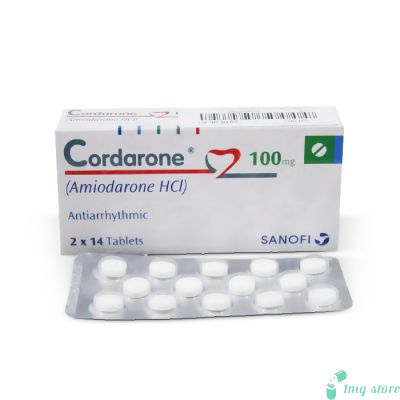Cardace Tablet (Ramipril)
Ramipril, sold under various brand names such as Cardace and Altace, is a widely prescribed medication used in the management of heart and blood pressure conditions.
Ramipril Tablet: Managing Heart and Blood Pressure
Ramipril, sold under various brand names such as Cardace and Altace, is a widely prescribed medication used in the management of Heart and Blood Pressure conditions. It belongs to the class of drugs known as angiotensin-converting enzyme (ACE) inhibitors. Ramipril is known for its efficacy in treating hypertension (high blood pressure), and congestive heart failure, and preventing heart-related complications. In this comprehensive guide, we will delve into various aspects of Ramipril, including dosage information, uses, potential side effects, precautions, and drug interactions, ensuring that you have a thorough understanding of this medication and how it can help manage heart and blood pressure issues.
Ramipril Tablet Dosage Information:
Proper dosage is crucial for achieving the desired therapeutic effects while minimizing the risk of side effects. The dosage of Ramipril may vary depending on the specific medical condition and individual patient factors. Here are the typical dosing guidelines:
Hypertension (High Blood Pressure):
The initial recommended dose for adults is usually 2.5 mg to 5 mg once daily.
The dose may be titrated up to a maximum of 10 mg daily, depending on individual response.
For elderly patients or those with impaired kidney function, lower initial doses may be considered.
Congestive Heart Failure:
Treatment typically starts with a lower dose, such as 1.25 mg once daily.
The dose may be gradually increased under medical supervision to a maximum of 10 mg daily.
Post-Myocardial Infarction (Heart Attack) Prevention:
The standard starting dose is 2.5 mg twice daily.
The dose may be increased to 5 mg twice daily after several weeks.
Missed Dose:
If a dose of Ramipril is missed, it should be taken as soon as remembered. However, if it is close to the time for the next scheduled dose, the missed dose should be skipped to avoid doubling up. It is important to maintain a consistent dosing schedule for the best results.
Overdose:
An overdose of Ramipril can lead to severe complications. If an overdose is suspected, seek immediate medical attention. Symptoms of overdose may include extreme dizziness, fainting, and difficulty breathing.
Ramipril Tablet price:
You can find competitive prices for Ramipril Tablets at our website, 1mgstore.com. We offer affordable options to help you manage your heart and blood pressure medications without breaking the bank.
Before starting Ramipril/Altace, consider the following precautions:
- Allergies: Inform your doctor if you are allergic to Ramipril or any other ACE inhibitors.
- Pregnancy and Breastfeeding: Ramipril can harm an unborn baby, so it should not be used during pregnancy. It may also pass into breast milk, so discuss the risks and benefits with your healthcare provider if you are breastfeeding.
- Kidney Function: Regular monitoring of kidney function is crucial, as Ramipril can affect kidney function.
- Potassium Levels: Avoid potassium supplements or high-potassium foods while on Ramipril, as it can increase blood potassium levels.
- Other Medications: Inform your healthcare provider about all medications, supplements, and herbal products you are taking, as some drugs may interact with Ramipril.
Uses:
Ramipril/Altace finds application in several medical conditions related to heart and blood pressure regulation:
Hypertension (High Blood Pressure):
Ramipril helps lower blood pressure, reducing the risk of heart attacks, strokes, and other cardiovascular complications.
Congestive Heart Failure:
It is used to manage congestive heart failure by improving the heart's pumping ability and reducing fluid buildup in the lungs.
Post-Myocardial Infarction (Heart Attack) Prevention:
Ramipril is prescribed to reduce the risk of recurrent heart attacks and improve survival rates in patients who have had a heart attack.
Diabetic Nephropathy:
In diabetic patients with kidney problems, Ramipril can slow down the progression of kidney damage.
Vascular Protection:
It is also used for vascular protection, helping to prevent stroke, heart attack, and other cardiovascular events in high-risk individuals.
While Ramipril can be highly effective, it may also cause side effects in some individuals. Common side effects include:
Cough: A persistent dry cough is a well-known side effect of ACE inhibitors like Ramipril.
Dizziness: Some patients may experience dizziness, especially when standing up quickly.
Elevated Blood Potassium Levels: Ramipril can lead to high levels of potassium in the blood, which may require monitoring.
Fatigue: A feeling of tiredness or weakness can occur.
Kidney Function Changes: In rare cases, Ramipril may affect kidney function, leading to changes in urine output.
It's essential to inform your healthcare provider if you experience any side effects, especially if they are severe or persistent.
1. Is it safe to take Ramipril Tablet during pregnancy?
No, Ramipril is not safe during pregnancy as it can harm the unborn baby. Consult your doctor for alternative medications if you are pregnant or planning to become pregnant.
2. Can I consume alcohol while taking Ramipril Tablet?
It's best to limit alcohol consumption while on Ramipril, as alcohol may increase the risk of low blood pressure and dizziness.
3. How long does it take for Ramipril Tablet to start lowering blood pressure?
The effects of Ramipril may be noticeable within a few hours, but it may take several weeks for the full blood pressure-lowering benefits to be achieved.
4. Are there any dietary restrictions while on Ramipril Tablet?
Avoid high-potassium foods and supplements as Ramipril can increase blood potassium levels. Consult your doctor or a nutritionist for guidance on a suitable diet.
5. Can I drive or operate heavy machinery while taking Ramipril Tablet?
Ramipril may cause dizziness in some individuals. If you experience this side effect, it's advisable to avoid driving or operating heavy machinery until you are certain of your reaction to the medication.
Where to buy Ramipril Tablet at our website 1mgstore.com:
When wondering where to purchase Ramipril Tablets conveniently and securely, look no further than our trusted online platform, 1mgstore.com. We provide a hassle-free way to acquire your essential medications from the comfort of your home.
Cardace tablets (Ramipril) can interact with other medications, potentially affecting their effectiveness or causing adverse reactions.
- Diuretics (Water Pills): Combining Ramipril/Altace with diuretics may increase the risk of low blood pressure. Your doctor may need to adjust the dosages carefully.
- Potassium Supplements: Taking potassium supplements or potassium-sparing diuretics with Ramipril can lead to dangerously high blood potassium levels.
- Non-Steroidal Anti-Inflammatory Drugs (NSAIDs): NSAIDs like ibuprofen and aspirin may reduce the blood pressure-lowering effects of Ramipril.
- Lithium: Ramipril may increase lithium levels in the blood, requiring careful monitoring of lithium levels in individuals on lithium therapy.
- Other Antihypertensive Medications: Combining Ramipril with other blood pressure-lowering drugs may result in a more significant blood pressure reduction. Your doctor will adjust the doses accordingly.
| Manufacturer | : | Sanofi Aventis, India |
| Equivalent Brand | : | Altace |
| Generic Search | : | Ramipril |















